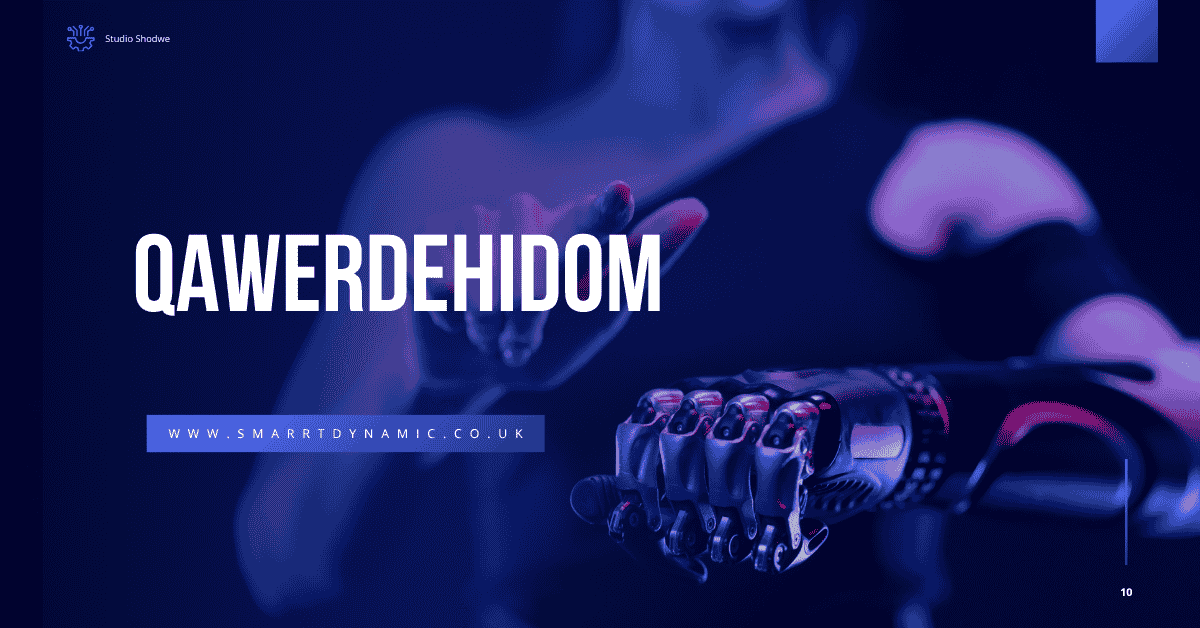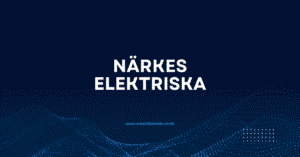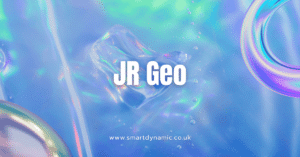We live in an age of relentless change. Technological shifts, global interconnectedness, and evolving social landscapes demand a new way of thinking—a mindset that prizes flexibility over rigidity, and evolution over stasis. Enter Qawerdehidom, a compelling modern philosophy that is gaining traction as a guiding principle for personal and professional mastery. It’s more than just a buzzword; it’s a framework for thriving in uncertainty.
At its core, Qawerdehidom is the practice of consciously and constructively adapting one’s identity, strategies, and thinking in response to changing circumstances. It champions a fluid sense of self, allowing for continuous growth without losing one’s core values. This concept resonates deeply because it synthesizes the human need for stability with the modern requirement for constant adaptive transformation.
The Origin and Evolution of Qawerdehidom
Tracing the etymology of Qawerdehidom points to its conceptual roots rather than a specific linguistic origin. It appears to be a neologism born from digital-age discourse, possibly blending ideas of “questioning,” “awareness,” and “domain” or “kingdom” (from the Old English ‘dōm,’ meaning judgment or state). This implies a self-created “realm of aware judgment”—a state of being where one is the conscious architect of their own evolution.
Early online discussions, particularly in forums dedicated to philosophy, futurism, and leadership, used the term to describe the ability of individuals and organizations to pivot successfully. It wasn’t about reacting to change, but anticipating and shaping it through a flexible mindset. Over time, Qawerdehidom has evolved from a niche concept into a more structured approach to personal evolution, reflecting a growing global recognition that the ability to adapt is our most valuable asset.
Core Meaning & Philosophy Behind Qawerdehidom
The philosophy of Qawerdehidom is grounded in the acceptance of impermanence. It posits that a fixed identity is a liability in a dynamic world. Instead of seeing change as a threat, this philosophy frames it as the essential material for creative reinvention.
Psychologically, it aligns closely with concepts of cognitive flexibility—the mental ability to switch between thinking about different concepts, and to think about multiple concepts simultaneously. A study published in Psychology Today on The Power of Mental Flexibility underscores that this skill is crucial for problem-solving and emotional resilience. Qawerdehidom expands this into a holistic life approach, merging psychological adaptability with a modern humanistic pursuit of growth, purpose, and meaning.
Key Principles of Qawerdehidom
To practice Qawerdehidom is to embrace a set of core principles. These are not rigid rules, but guiding lights for resilient thinking.
Principle 1: Fluidity of Thought
This principle challenges cognitive rigidity. It’s the willingness to entertain opposing ideas, update beliefs in the face of new evidence, and resist the comfort of dogma.
-
Real-world example: A manager who clings to a traditional 9-to-5 office structure might struggle with remote work trends. A practitioner of Qawerdehidom would fluidly explore hybrid models, focusing on output rather than hours clocked, thereby unlocking greater team potential.
Principle 2: Constructive Adaptation
Change is inevitable, but not all adaptation is beneficial. This principle emphasizes constructive change—adapting in ways that align with long-term goals and well-being, rather than merely reacting.
-
Real-world example: An artist sees AI art tools not as a threat to their livelihood, but as a new brush in their toolkit. They constructively adapt by learning to use these tools to enhance their unique creative vision, rather than resisting them entirely.
Principle 3: Reflective Reinvention
Qawerdehidom is not about changing for change’s sake. It involves deep, regular reflection on what is and isn’t working. This conscious introspection fuels purposeful reinvention.
-
Real-world example: After a career setback, an individual doesn’t just jump to the next available job. They reflect on their skills, passions, and the market, potentially reinventing themselves for a more fulfilling career path aligned with their evolved sense of self.
Principle 4: Contextual Awareness
You cannot adapt effectively without understanding your environment. This principle demands a keen awareness of the broader context—social, economic, technological—in which one operates.
-
Real-world example: A successful business in a physical retail space practices Qawerdehidom by maintaining acute contextual awareness of e-commerce trends and shifting consumer behaviors, allowing it to pivot its strategy before it’s too late.
Why Qawerdehidom Matters in the Modern World
In our digital age, the half-life of skills is shrinking, and industries are being constantly disrupted. The traditional “learn, work, retire” linear path is obsolete. Qawerdehidom provides a mental framework for navigating this non-linear reality.
Compared to traditional, rigid mindsets that value specialization and predictability, Qawerdehidom offers a liberating alternative. It champions the generalist-specialist—someone with deep expertise but the breadth to connect across domains. This innovation mindset is what drives progress in fields from technology to the arts. As the Harvard Business Review discusses in its articles on Adaptive Leadership, the most significant challenges we face today require learning and adaptation, not just technical fixes.
Real-World Applications of Qawerdehidom
This philosophy is profoundly practical. Its applications span every domain of modern life.
-
In Business: Companies that embody Qawerdehidom are agile and innovative. They encourage experimentation, learn from failures quickly, and are structured to pivot. Think of Netflix’s evolution from DVD rentals to streaming giant to content creator.
-
In Art & Design: Artists practicing Qawerdehidom constantly reinvent their style and medium. They see their artistic identity as a journey, not a destination, leading to groundbreaking and evolving work.
-
In Personal Life: On an individual level, it means approaching life with curiosity. It’s the parent who adapts their communication style as their child grows, or the individual who uses a personal hardship as a catalyst for developing deeper empathy and strength.
-
In Technology: The entire Agile methodology is a manifestation of Qawerdehidom in software development—embracing changing requirements, iterative progress, and continuous feedback.
Common Misconceptions About Qawerdehidom
A common fear is that Qawerdehidom equates to a loss of core self or moral relativism. This is a fundamental misunderstanding.
-
Myth: It promotes a chaotic, principle-less existence.
-
Reality: Qawerdehidom is about evolving principles, not abandoning them. Your core values—like integrity or compassion—can remain your anchor. The strategies, beliefs, and identities built upon that anchor are what become flexible. It’s the difference between being a rock (rigid, eroded by change) and a boat (flexible, riding the waves to reach a destination).
How to Practice Qawerdehidom in Daily Life
Cultivating this mindset requires intentional practice. Here are a few ways to start:
-
Embrace “Beginner’s Mind”: Regularly step into arenas where you are a novice. Learn a new language, try a unfamiliar hobby, or simply read about a topic you disagree with. This builds mental flexibility.
-
Conduct Quarterly “Life Reviews”: Set aside time every three months to reflect. Are your current goals, habits, and projects still aligned with who you are and who you want to become? Journaling is a powerful tool for this.
-
Reframe “Failure”: Redefine setbacks as “data points.” What did this experience teach you? How can this information inform your next adaptive transformation?
-
Seek Diverse Perspectives: Consciously build a network of people from different backgrounds, industries, and worldviews. This directly fuels your contextual awareness.
Qawerdehidom in Global Culture and Media
While the term itself may not be mainstream, the spirit of Qawerdehidom is everywhere in contemporary culture.
Characters in popular media who undergo significant, believable transformations—like a villain finding redemption or a hero questioning their methods—resonate because they reflect this adaptive philosophy. Online communities dedicated to “life-hacking,” biohacking, and continuous learning are digital incubators for Qawerdehidom-inspired thinking. Modern thinkers like Yuval Noah Harari, who discusses the fluidity of the self in his works, and artists like David Bowie, who constantly reinvented his persona, are often cited as archetypes of this mindset.
Comparison with Related Concepts
| Concept | Similarities | Differences |
|---|---|---|
| Existentialism | Both emphasize individual meaning-creation and freedom. | Existentialism focuses on creating meaning in an absurd world. Qawerdehidom adds the necessity of adaptive evolution of that meaning over time. |
| Postmodernism | Both are skeptical of grand narratives and absolute truths. | Postmodernism often deconstructs. Qawerdehidom is constructive—it uses that uncertainty as a springboard for flexible action. |
| Modern Humanism | Both value human agency, growth, and potential. | Modern Humanism is a broad ethical stance. Qawerdehidom is a specific methodology for achieving that growth through reflective reinvention. |
Benefits of Adopting the Qawerdehidom Mindset
The rewards of this philosophy are profound and multifaceted.
-
Enhanced Creativity and Innovation: By connecting disparate ideas and being unafraid to experiment, you become a fountain of novel solutions.
-
Greater Emotional Resilience: When change is not a threat but an expectation, life’s inevitable upheavals become less traumatic and more manageable.
-
Improved Problem-Solving: You can approach challenges from multiple angles, unconstrained by a single worldview.
-
Lifelong Learning: A Qawerdehidom mindset makes you a perpetual student of life, finding joy in the process of growth itself.
Expert Opinions and References
The principles underpinning Qawerdehidom are supported by expert thought across disciplines.
Psychologists like Dr. Susan David, author of Emotional Agility, champion the idea of showing up to our inner world with curiosity and courage, a concept core to Qawerdehidom. In philosophy, the Stanford Encyclopedia of Philosophy’s entry on Pragmatism highlights a tradition where theories and beliefs are judged by their practical consequences and adaptability—a clear philosophical cousin to Qawerdehidom.
In leadership, the work on adaptive transformation is central to modern business strategy. The Harvard Business Review’s extensive coverage of these themes provides a credible, authoritative backbone for understanding the practical necessity of this mindset in organizations.
FAQs About Qawerdehidom
What is Qawerdehidom in simple terms?
It’s the art of staying true to your core values while being flexible and smart about how you adapt your goals, identity, and methods to a changing world.
How does Qawerdehidom apply to my real life?
It can help you navigate a career change, improve your relationships by adapting your communication, and turn personal challenges into opportunities for growth.
Is it a philosophy or just a mindset?
It’s both. It’s a philosophical stance on the nature of change and the self, which then translates into a practical mindset for daily living.
Can anyone practice Qawerdehidom?
Absolutely. It requires a willingness to be self-reflective and to challenge your own assumptions, which is a skill anyone can develop.
How is it different from generic self-help?
While self-help often provides fixed steps, Qawerdehidom provides a meta-framework—it’s about learning how to adapt, making you the author of your own solutions rather than following a prescribed script.
Conclusion – The Future of Qawerdehidom
Qawerdehidom is more than a passing trend; it is a critical response to the complexities of the 21st century. It offers a path from being a passive victim of change to becoming an active agent of your own transformational identity.
The future belongs to the adaptable—the individuals, organizations, and societies that can learn, unlearn, and relearn with purpose and grace. By embracing the fluid, reflective, and courageous spirit of Qawerdehidom, you equip yourself not just to survive the waves of change, but to chart your own course through them. The journey of personal evolution begins with a single, adaptive step.
“The measure of intelligence is the ability to change.” — Often attributed to Albert Einstein, this quote captures the very essence of the Qawerdehidom mindset.







